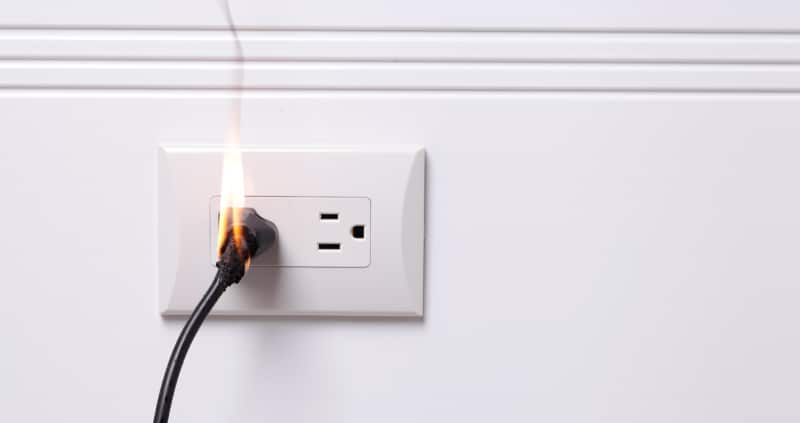May marks National Electrical Safety Month (NESM) for electrical service providers across the country, and for good reason. With electricity powering virtually every aspect of our lives, ensuring its safe and efficient use within our homes is more important now than ever before. From powering our appliances to lighting our living spaces, access to safe electricity is often taken for granted but something that can pose a significant hazard if not managed properly. That’s why this month we’re sharing some proactive steps you can take to safeguard your home and loved ones. Read on!
Understanding the Importance of Electrical Safety
As we mentioned, electricity is a necessary part of our modern lives, but it also demands our respect. And when it comes to our homes, skimping on the electrical systems that keep everything running can spell disaster. From faulty wiring to overloaded circuits, ignoring these common electrical issues can lead to electrical fires, electrocutions, and property damage. In fact, according to the Electrical Safety Foundation International (ESFI), electrical fires account for over 51,000 residential fires in the United States, each year. The good news? Many of these incidents are preventable through smart proactive steps.
Whole-Home Electrical Safety Inspections: A Prerequisite for Peace of Mind
One of the most effective ways to ensure the safety of your home’s electrical systems is through a comprehensive whole-home electrical safety inspection. This service involves a thorough assessment of your electrical systems by a licensed electrician. During an inspection, technicians cover everything from wiring and outlets, to switches and circuit breakers, identifying potential hazards and areas for improvement.
With a whole-home electrical safety inspection, you’ll get useful insight into the condition of your electrical systems–highlighting any outdated components, overloaded circuits, or signs of wear and tear. With this knowledge, you can take proactive steps to address small issues before they escalate into costly problems. And for those purchasing or renovating a home, an inspection offers peace of mind knowing that your home’s electrical systems meet current safety codes and standards, which typically isn’t covered at great depth by a home inspector.
Whole-Home Surge Protection: Shielding Your Home from Electrical Surges
Electrical surges are sudden spikes in voltage that can wreak havoc on electronic devices and appliances, causing permanent damage and potentially starting electrical fires. While some surges originate from external sources like lightning strikes or utility grid fluctuations, over 80% of surges are said to be generated internally by everyday devices cycling on and off within the home. Regardless of where they come from, electrical surges are not only unpredictable, but can be costly and potentially dangerous. That’s where whole-home surge protection comes in.
Unlike point-of-use surge protectors that only safeguard individual devices, whole-home surge protection systems are installed at the electrical panel, preventing surges before they can cause damage to sensitive electronics and appliances.
Investing in whole-home surge protection is a wise decision for homeowners looking to safeguard their investments and prolong the lifespan of their equipment. It’s important to note that like all surge protectors, whole-home systems are an exhaustible item that should be replaced every 3-5 years to ensure complete protection year after year.
Empowering Homeowners by Prioritizing Electrical Safety
Whether you’re a new homeowner, a seasoned property owner, or somewhere in between, taking steps to assess, upgrade, and maintain your electrical system is a worthwhile and empowering investment in the safety and well-being of your household.
By investing in essential services such as whole-home electrical safety inspections, GFCI outlet installations, surge protection, and electrical panel replacements–homeowners can have complete peace of mind knowing they’re safeguarding their homes and families against common and preventable electrical hazards.
If you need assistance with any electrical project in your home, whether it be during this National Electrical Safety Month or beyond–just call Heritage. Our team of licensed electricians can tackle anything that runs your home.
$50 OFF
ANY Repair*
Must be over $200 value.
SCHEDULE NOWCannot be combined with other offers or discounts. Expires 7/31/25

Financing Made Easy
When you choose Heritage, you can rest easy knowing that we provide straightforward options to help you budget for a complete solution that will last you for decades to come.
VIEW FINANCING OPTIONS
Complete Care Plan
With Complete Care, enjoy peace of mind knowing your home's plumbing, heating, cooling, and electrical needs are handled year after year—hassle-free, with added benefits.
VIEW PLAN







